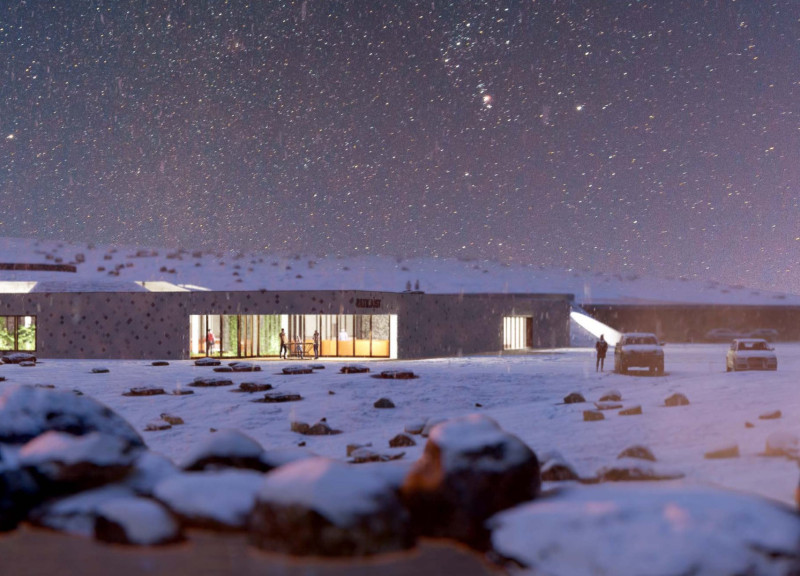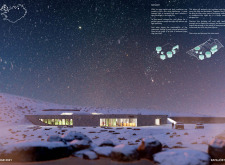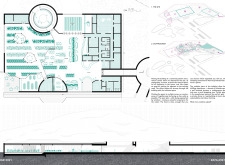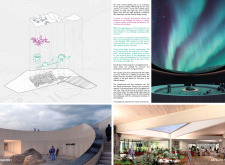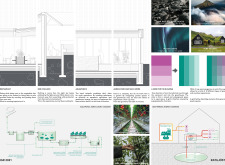5 key facts about this project
The primary function of RATILJÖST is to provide a space for dining and interaction with sustainable food practices. It includes an open kitchen, a greenhouse featuring aquaponics, and communal dining areas that encourage engagement with the local landscape. The design allows visitors to participate in food selection, thereby fostering a deeper understanding of the food production process.
Unique Approaches to Design
RATILJÖST distinguishes itself through its thoughtful integration with the Icelandic environment. The architectural form is inspired by local geological features, creating a structure that blends with the volcanic terrain. Extensive use of glass walls enhances natural lighting and offers unobstructed views of the surrounding landscape, allowing diners to immerse themselves in the scenery.
This project prioritizes minimizing light pollution, making it possible for visitors to enjoy clear views of the night sky while dining. The architectural design incorporates green roofs, which contribute to insulation and promote biodiversity. This approach not only reflects ecological considerations but also enhances the aesthetic appeal of the building.
Sustainable Practices and Spatial Organization
The layout of RATILJÖST provides distinct zones for different activities, allowing for efficient visitor flow and organization. The culinary area is centrally located, featuring an open kitchen design that adds transparency to food preparation. Surrounding dining spaces offer various seating configurations, promoting social interaction.
Incorporating aquaponics and greenhouse areas within the project enables visitors to engage with sustainable food systems directly. Pocket gardens are distributed throughout the site, further connecting the architecture with the landscape. This environmentally conscious design emphasizes educational aspects, promoting awareness of sustainability in food production.
Explore the architectural plans, architectural sections, and other architectural designs associated with RATILJÖST for a comprehensive understanding of its innovative approaches and functional aspects. Delve into the architectural ideas that make this project a relevant example of modern sustainable architecture.


